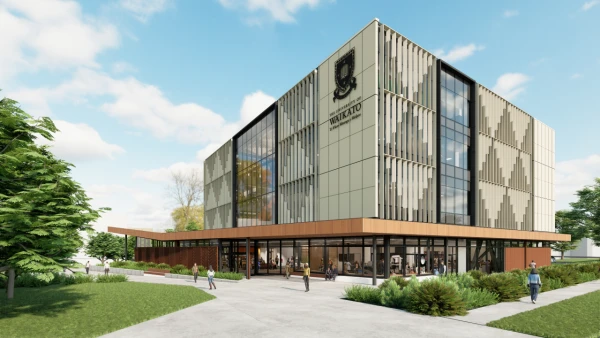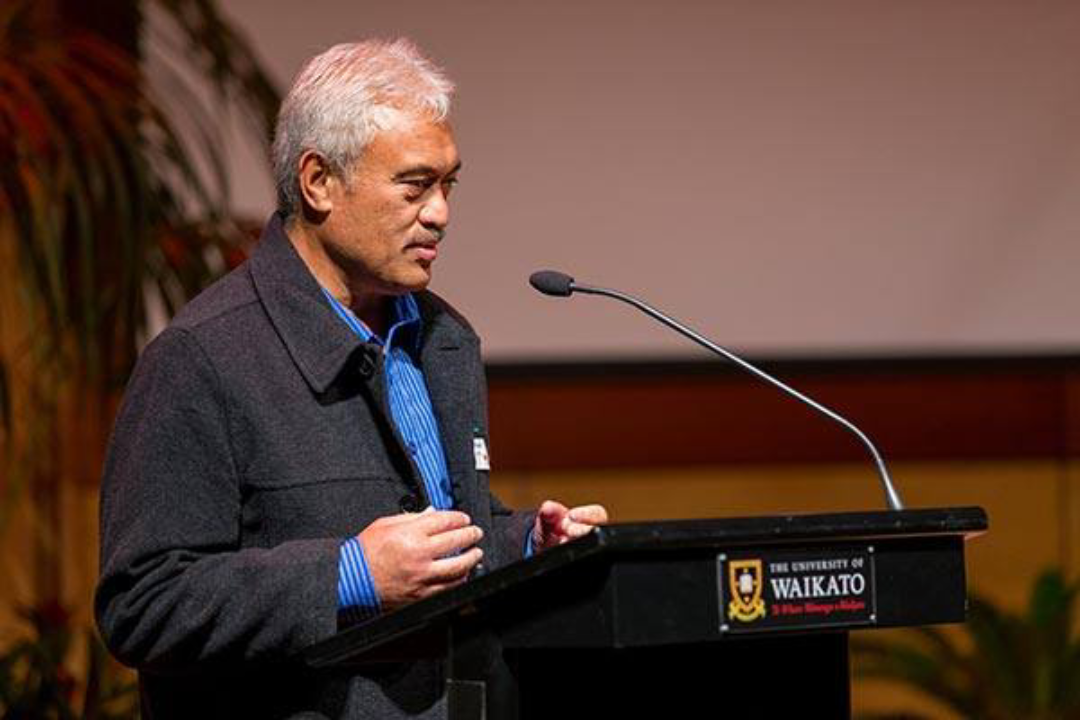The University of Waikato is delighted to have the Government’s support for its plans to develop New Zealand’s first graduate-entry medical school, set to open in 2028.
The University says it is committed to delivering a medical school that will attract more people who want to train to be doctors in primary and community care.

An artist’s impression of the new Division of Health Precinct, which will be home to the New Zealand Graduate School of Medicine at the Hamilton campus.
University of Waikato Vice-Chancellor, Professor Neil Quigley, says this is a landmark moment for New Zealand.
“We will be offering a programme that selects and trains doctors in a fundamentally different way and will complement New Zealand’s two existing medical schools. It will be designed to produce more graduates who choose to become GPs and who want to work in regional and rural communities.”
The University also unveiled the new name of the medical school, the New Zealand Graduate School of Medicine (NZGSM), reflective of its commitment to partnering with local communities and the plan to have students undertake clinical placements across the country.
Pro Vice-Chancellor Health, Professor Jo Lane, says the NZGSM will “train the doctors New Zealand needs”, taking an innovative and community-engaged approach to addressing the chronic shortage in primary care.
“Our curriculum will prioritise clinical placements in regional and rural health settings, allowing graduates to experience working with diverse populations while building deep connections in the communities they serve,” says Professor Lane.
The next phase of work is to deepen engagements with rural and regional communities and primary healthcare providers throughout New Zealand to finalise where clinical placements will take place.
Graduate-entry medical programmes require students to already hold a bachelor’s degree. They are the most common model of medical education in Australia, and are the predominant model of medical education in Canada and the USA. This approach has proven to be highly successful in targeting areas with specific need, such as primary care shortages, which is what New Zealand desperately needs.
Professor Quigley says the University greatly appreciates the groundswell of support from medical professionals and members of the public in recent years that has been so important in making the medical school become a reality.
The four-year programme will begin in 2028, with the first cohort graduating and entering the workforce in 2032.
For more visit the New Zealand Graduate School of Medicine.



